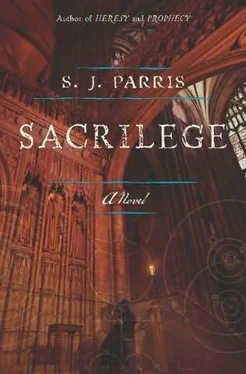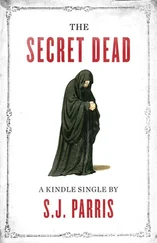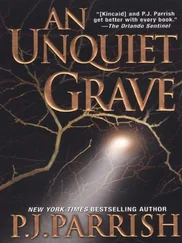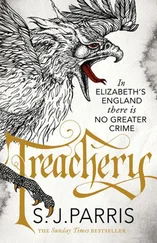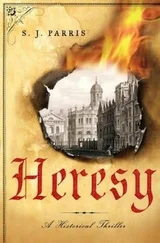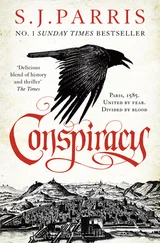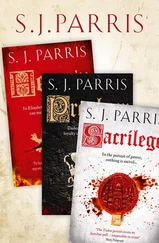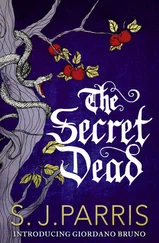There was also the prospect, after almost a year spent at a desk buried in books and astronomical charts, of proving my worth again to Walsingham and the queen. The goodwill of princes was fickle, as every courtier knew, and an ambassador could be recalled or expelled at a moment’s notice. I was certain that my own best prospects, if I wanted to go on writing my books without fear of the Inquisition, lay at the court of England, not France, but to ensure myself a future there I needed Walsingham to value me for my own skills and not merely for my useful connection to the French embassy.
Sophia’s horse gave an impatient little whinny and tossed its mane, making her start in the saddle. I turned, but she recovered her poise and purposefully ignored my expression of concern, her eyes fixed on the road. She rode competently enough, though she looked uncomfortable astride the horse, her long legs pressed tightly against its sides. I tried not to dwell on this thought. She was unused to riding like a man, I supposed, and the stiffness of her posture in the saddle could give her away. One more small trap to avoid, if her boy’s disguise were to hold up. I concentrated my gaze again on the tips of my horse’s ears. There would be danger in this for both of us; I was not so caught up in dreams of adventure as to pretend otherwise. If Sophia was recognised within the city walls of Canterbury, she would be arrested to await trial for her husband’s murder, and if my search for the evidence to vindicate her did not succeed before the assizes, she would face certain execution. There were other dangers; if the real killer was still in the city and thought he had escaped blame, he would not thank a stranger for asking awkward questions. Anyone who could strike a man down with such force that his brains spilled over the ground would surely not hesitate to dispatch those who seemed overly curious. And as for the legend of Becket’s corpse, I could not help but remember that my last attempt to infiltrate the underground Catholic resistance had very nearly ended fatally.
The one consolation was that no one knew me in Canterbury; I was free to present myself in any guise I chose. At my belt I wore a purse of money, with another inside my riding boots and another wrapped in linen shirts in the panniers slung over my saddle. Across my back I carried a leather satchel containing my travel licence and a letter sealed in thick crimson wax with Sidney’s coat of arms, recommending me as a visiting scholar to his former tutor, the Reverend Doctor Harry Robinson, and requesting that he make me welcome during my stay in Canterbury. The letter was a cover, naturally, in case I needed to explain myself to any inquisitive authorities along the road. Robinson had never been Sidney’s tutor, though he was apparently acquainted with the family of Sidney’s mother, but the Sidney coat of arms ought to be sufficient protection against the bullying of petty officials. So that I might travel anonymously if I should be searched, Walsingham had sent a fast rider ahead to Harry Robinson two days earlier with an encrypted letter explaining who I was and the true nature of my business in Canterbury, and requesting Doctor Robinson to assist me for Walsingham’s sake as best he could.
What I was to do with Sophia was another matter, I thought, glancing over at her as she rode, head bowed, teeth gritted. I had omitted to mention to either Walsingham or Sidney that I was planning to take her to Canterbury with me—I already knew all the arguments they would make against such folly. My belt held a sheath for the bone-handled knife that had saved my life more than once, and which a more superstitious man might have been tempted to regard as a good-luck charm.
The low, whitewashed taverns and brothels of Southwark, London’s most lawless borough, ended abruptly and beyond them the horizon opened up into a wide vista of drained marshland converted to fields now parched yellow, the Kent road threading through the bleached landscape, lost in the shimmering distance. As soon as we left the narrow streets behind, the fetid smells of the city receded to be replaced by the ripe scents of baking earth and warm grass. Despite the dust, I inhaled deeply, tasting for the first time in weeks air that was not thick with the stench of rot and sewage. Swallows looped patterns in the empty sky. Out here, the birdsong was loud and insistent, with a joyful lilt in its cadences, so different from the shrilling of gulls that I had grown used to, living so near the river. Along the way we passed travellers heading in the same direction, many with mules or carts piled with what looked like domestic possessions, and children precariously balanced on top—families fleeing the threat of plague.
“Where will they go?” Sophia wondered, as we passed one straggling group with a small donkey cart and several barefoot children who stared up at us with watchful expressions. One of the older children held a baby in her lap, and I saw Sophia’s eyes latch on to it. She spoke so quietly she might almost have been talking to herself.
“To relatives, I suppose.”
“What if their relatives will not take them in? Coming from a plague city?”
I shrugged. “Then they will have no choice but to return to London, I imagine.”
“To the plague,” she whispered, barely audible. She appeared stricken; I watched her for a moment as she turned back to take a last look at the child and the baby. She has a new understanding of what it means to be a refugee, I thought, a raw sympathy with the desperate, those who must throw themselves on the mercy of others. I remembered my own early days as a fugitive on the road to Rome and then north through Italy; how quickly I was exposed to the best and worst of human nature at close quarters. I was taught to survive by bitter experience, but I learned more about compassion in those months than I ever did in thirteen years of prayer and study as a Dominican monk.
“No one has yet seen any sign of plague,” I reminded her.
Sophia turned to me with a distant smile, as if seeing me properly for the first time since we had set out.
“So you would not believe there is plague in London until you see a man fall dead of it at your feet, is that it?”
“I would ask for some proof beyond marketplace rumour, if that’s what you mean.”
“And yet you will believe that the Earth goes around the Sun, and that the fixed stars are not fixed, and the universe is infinite, full of other worlds, all with their own suns? Where is your proof for that?”
“There are calculations based on measurements of the stars—” I began, until I noticed the smile of amusement playing at the corners of her lips. Her chin jutted defiantly. “Very well, you are right—I have no firm proof that there are other worlds. The question is, rather, why should we assume there are not? Is it not arrogance to think we are the only creatures in the cosmos who know how to look up at the night sky and consider our place in it?”
“The Holy Scriptures say nothing about any distant worlds.”
“The Holy Scriptures were written by men. If there are people who inhabit other worlds out there”—I gestured with one hand—“it is reasonable to suppose they would have their own writings, no? Perhaps their books have no mention of us.”
She smiled, shading her eyes with one hand as she turned to look at me.
“Have you put all this in your book for the queen?”
“Not all, no.”
“Just as well.”
She laughed briefly before retreating into her pensive silence again, but there had been warmth in that laughter. The brief exchange had offered a glimpse of the old Sophia, as if she had thrown me a scrap of what I had hoped for from this journey, the conversations we had known in Oxford, when I had sensed she wanted to sharpen her intellect against mine. Perhaps I had been a fool to imagine we would have the leisure for that kind of talk, with such a burden weighing on her shoulders. But to a hungry man, even a scrap is enough to quicken his appetite.
Читать дальше
Конец ознакомительного отрывка
Купить книгу
